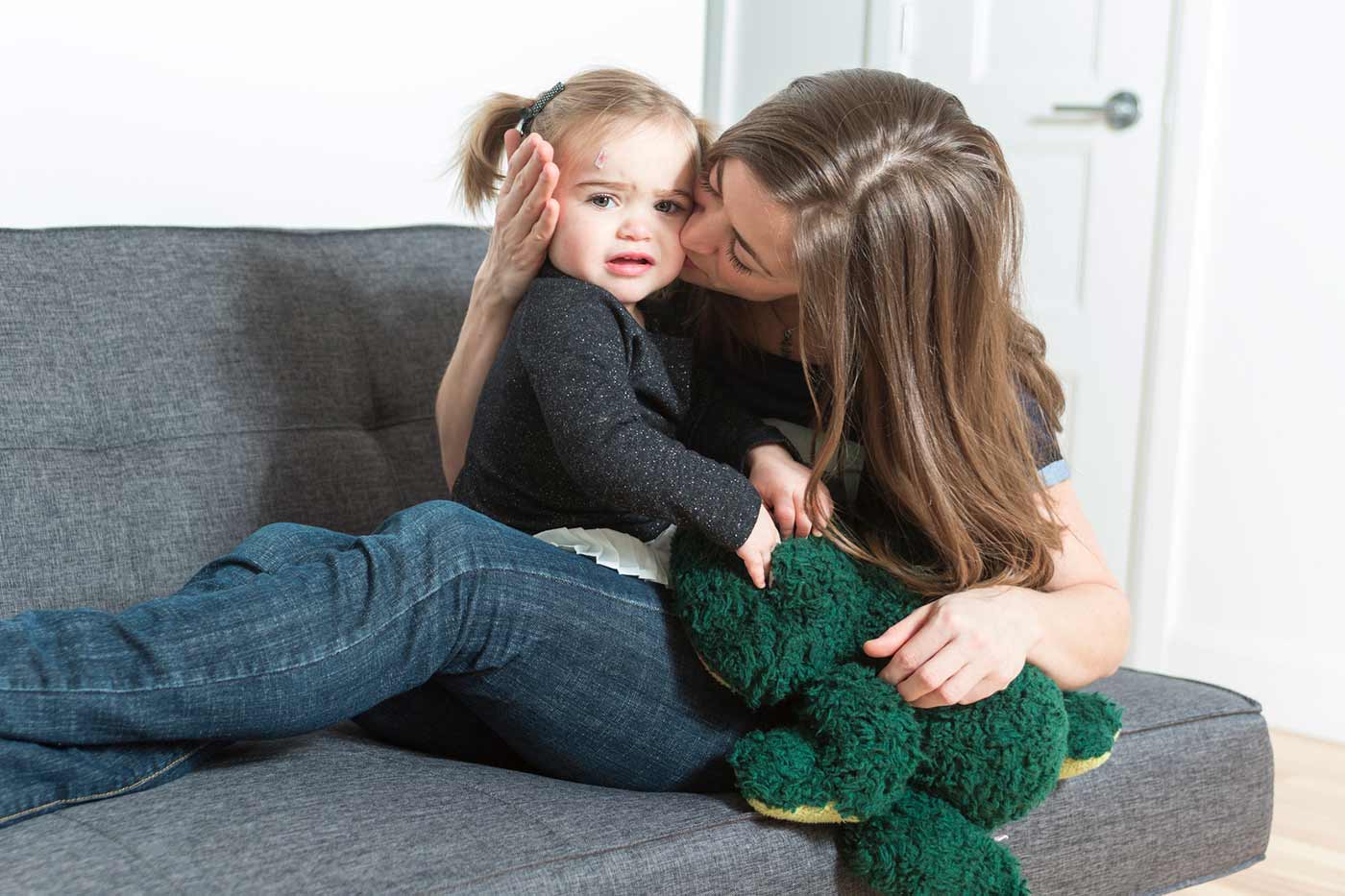When a Child Is Overly Attached to One Parent
Is your child too possessive of one parent and rejecting the other? Learn more about why a child is overly attached to one parent and how to address it.

It’s never easy when a child is overly attached to a parent.
In one scenario, your toddler is rejecting you because she only wants Dad. You can’t even do simple tasks like putting on her shoes or removing her plate from the table. Nope, she wants Dad to do those for her.
In another scenario, perhaps you’re the preferred parent she feels possessive about. She whines for your attention all day long and gets mad when Dad joins the both of you on the couch.
Excessive attachment places unrealistic demands on one parent while making the other feel hurt or cause withdrawal. Thankfully, you’re not without help. In this article, let’s talk about both scenarios and how you can address these issues:
Table of Contents
When your child is attached to the other parent
As the parent who is “rejected,” it’s all too easy to feel hurt and take your child’s behavior personally. Getting things done is difficult when he wants the other parent to do everything for him. And he might even learn that he can get what he wants by crying.
As difficult as this is, take comfort in knowing that you can do plenty to ease his attachment and make family life hum along much better. Take a look at what to do if he’s attached to the other parent:
Don’t make it about you
Sometimes, what we’re dealing with isn’t so much our kids’ attachment as it is our own bruised egos. It’s never easy when it feels like your child is rejecting one parent (especially when that parent is you). But take a step back and ask yourself whether you’re making it more about you than her.
For instance, it’s normal for her to feel excited about your partner and develop a secure attachment, especially if they haven’t seen each other all day. Maybe you’re relying too much on “being needed” as a way to feel good about yourself, a reassurance that you’re a good mom.
Try not to take her behavior personally. Most of the time, we project assumptions and stories that aren’t there. Her excitement about your partner doesn’t diminish her love for you, nor is it a sign that you’re not a good mom.
Don’t smother her with excessive attention, hoping she’ll prefer you instead. Let her decide whom she wants to spend time with, so long as it’s a reasonable request and your partner is available.
Besides, focusing on yourself could make her feel guilty, putting an unfair burden on her for feeling the way she does. You shouldn’t rely on guilt for someone to show you love and affection.
Free email challenge: Looking for actionable steps and quick wins in parenting? The Better Parenting 5-Day Challenge is for parents who know they want to improve but need that little nudge and supportive guidance to do so. Sign up today—at no cost to you. You’ll also get my newsletters, which parents say they LOVE:
“Thank you so much for your daily newsletter. It gives me insight into how to show, teach, and challenge my daughter and myself. Especially, me being a first-time mom!” -Dikema Cobb
Let your partner take care of your child
What if we have it misunderstood? What if our kids’ attachment and longing for one parent isn’t excessive, but a simple desire to spend time with a parent?
Let’s say your baby only wants Dad to do everything, from feeding her dinner to tucking her into bed. Could her requests be a sign that she wants to spend time with Dad, and not an unreasonable ask?
Assuming Dad is available to do all these things, let him. This doesn’t make you any less of a parent, but it does fill a need in your child’s heart that yearns for her dad.

Relish the extra time
Does it pain you when your child wants your partner to do everything for him? Rather than seeing it as a personal attack, remind yourself how much extra free time you get.
With your partner taking care of her, you can tackle other tasks or simply take a moment to relax. Use this as an opportunity to sleep in or get some work done. See it as a good thing, even if to take care of yourself.
This is especially important if you’re the one with her all day. It’s normal for a child to miss the parent she doesn’t see a lot during the day. And it only makes sense to share the load with your partner when you and your child have been together the rest of the time. Consider this as a chance for them to spend one-on-one time with each other.

When your child is attached to you
Now let’s talk about what happens if, say, your toddler doesn’t want daddy and is instead overly attached to you. Despite what others might assume, this isn’t always an enviable position to be in.
You barely finish your tasks because she wants to be with you 24/7. You do everything for her to avoid yet another tantrum. Drop-offs with the grandparents are a nightmare, and you’re afraid you’re enabling habits that are going to be difficult to undo.
What should you do in this case?

Don’t give in all the time
Earlier, I mentioned giving your child what he wants, especially if he hasn’t seen one parent the whole day or is missing him a lot.
But what do you do when he’s so attached that he won’t even let anyone else care for him? When you’re busy doing something else and can’t attend to him right now?
Hold your ground and don’t give in, especially if your partner is ready and able to do those tasks as well. You should be able to rest and relax after being with him most of the time and let your partner feed and bathe him, for instance.
He also shouldn’t dictate who gets to hug you or sit with you on the couch, just so he can keep you all to himself. Be mindful of his requests: If they seem unreasonable and demanding, you don’t have to bend over backward to make him happy.
Have your partner do regular childcare tasks
It’s one thing if your partner takes your child on fun outings on the weekends, but another when he handles regular childcare tasks every day. The more he can participate in routine tasks, the more accustomed your child can feel around him.
Focus on tasks that happen every day, and perhaps even have him handle them exclusively. Maybe it’s bathing her every night or taking her to daycare every morning. That way, she can feel comfortable and even expect him to do these for her.
Conclusion
Whether toward you or your partner, it’s never easy when your child has a “favorite parent.” But in hindsight, excessive attachment is a “good” problem to have. And thankfully you now have the action steps to take to make your days—and everyone’s feelings—smooth once again.
Get more tips:
- How to Discipline a Toddler Who Doesn’t Listen
- 3-Year-Old Attached to Mom? Here’s What to Do
- Toddler More Attached to Grandmother? Here’s How to Cope
- What to Do When Your Child Cries at School Drop Off
- Toddler Has Sudden Separation Anxiety at Bedtime
Don’t forget: Join my newsletter and sign up for the Better Parenting 5-Day Challenge today:

